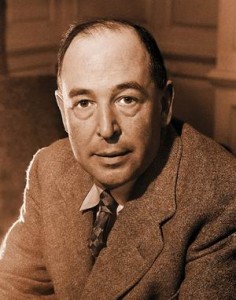 As much as C. S. Lewis said he didn’t like to discuss politics, my research into his writings, both published and unpublished, reveals a deep interest in the subject of governing and political philosophy. What he didn’t like were the day-to-day mundane activities and arguments of politics—who is going to win the next election, etc. Political philosophy, though, was another matter entirely.
As much as C. S. Lewis said he didn’t like to discuss politics, my research into his writings, both published and unpublished, reveals a deep interest in the subject of governing and political philosophy. What he didn’t like were the day-to-day mundane activities and arguments of politics—who is going to win the next election, etc. Political philosophy, though, was another matter entirely.
For instance, in a little-known but highly readable essay called “Modern Man and His Categories of Thought,” written in 1946, he had this critique of Marxism that shows great insight into the nature of the beast:
Proletarianism, in its various forms ranging from strict Marxism to vague “democracy” . . . [is] self-satisfied to a degree perhaps beyond the self-satisfaction of any recorded aristocracy.
Notice his equation of the Marxist worldview, often disguised by the word “democracy,” with aristocracy. Yet isn’t the Marxist view more of an “everyone is equal” idea, without an aristocracy? He explains further that this is an aristocracy of being an elite that is always “right”:
They are convinced that whatever may be wrong with the world it cannot be themselves. Someone else must be to blame for every evil.
In their view, this even applies to God, if indeed He exists at all:
Hence, when the existence of God is discussed, they by no means think of Him as their Judge. On the contrary, they are His judges. If He puts up a reasonable defence they will consider it and perhaps acquit Him.
Well, how generous of them. Lewis continues:
They have no feelings of fear, guilt, or awe. They think, from the very outset, of God’s duties to them, not their duties to Him. And God’s duties to them are conceived not in terms of salvation but in purely secular terms—social security, prevention of war, a higher standard of life. “Religion” is judged exclusively by its contribution to these ends.
The “vague democracy” we seem to be living under today has the same attitude: if religious beliefs help to achieve what we choose to call “social justice,” then we are willing to allow it. Our leaders may be unwilling to call themselves Marxists, but many have succumbed to the Marxist worldview.
Lewis has much to share with us on topics that we may not realize he has addressed.
